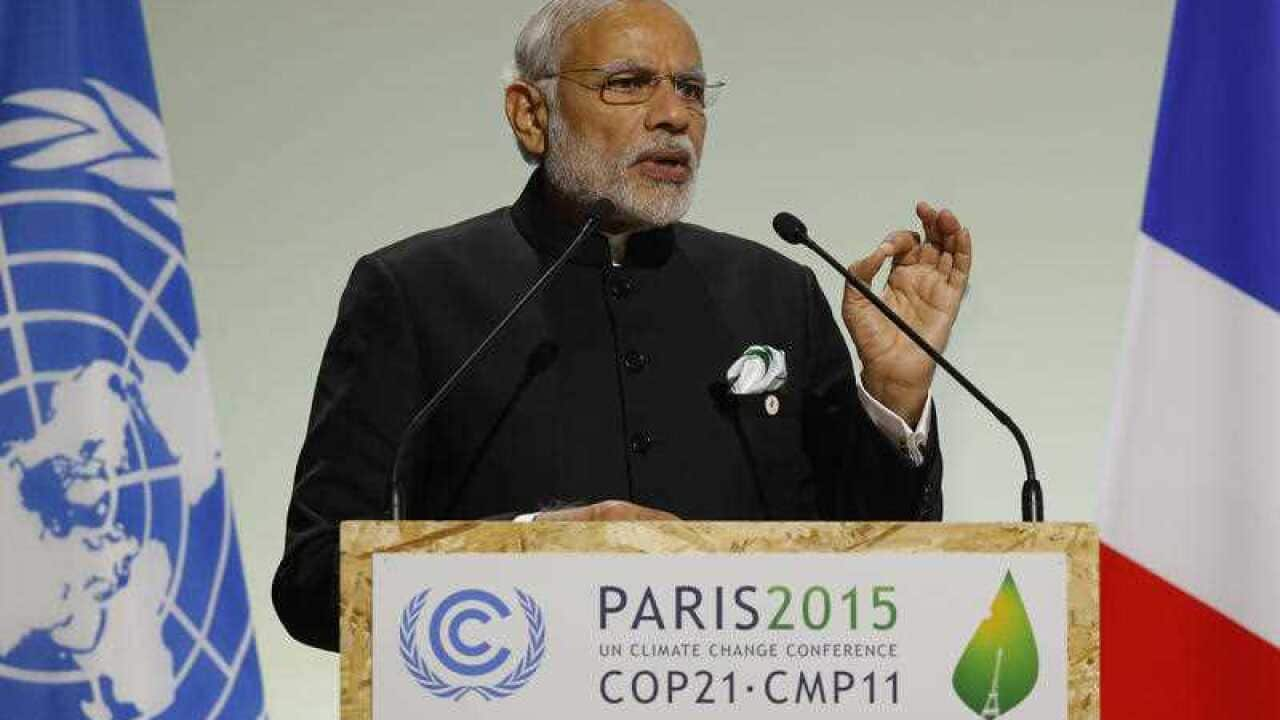India, under the leadership of its Prime Minister Narendra Modi, is undergoing a rapid transition towards a low-pollution and climate-resilient future.
This low-pollution transition is being operationalised, primarily, in its electricity, agricultural, and cities and urban transport sectors:
In electricity, as recently as 17 June, the Modi government approved a five-fold increase in India’s solar electricity target – up from 20 gigawatts to 100 gigawatts by 2022. This is a hugely ambitious target and achieving it would see India surpass Germany as the world leader in solar.
In agriculture, Modi has called for ‘a second agriculture revolution’, which involves modernising farming techniques, to ensure that India is prepared to adapt to increasingly erratic climatic conditions, including increasingly frequent drought, heatwaves, and unseasonal storms.
In the cities and urban transport sector, Modi last year announced an urban transition towards ‘clean and sustainable’ urban spaces by radically renovating 500 cities across the country and building 100 new ‘smart cities’ from the ground up.
The Modi government’s climate-resilient development plan has the potential to deliver a variety of social, economic and environmental benefits, for instance electrifying the homes of the poor, creating rural employment opportunities for young people, and averting premature deaths from acute respiratory infections from indoor and outdoor air pollution.
The plan forms a key part of Modi’s broader efforts to construct a new ‘modern’ identity for India, or as he describes it: to ‘refine, rebuild and transform the national character’. For Modi, India must no longer be known as a country that is ‘poor’, ‘old’, ‘unhealthy’, ‘unskilled’, ‘filthy’, and ‘underdeveloped’.
Modi’s vision is largely compatible with the United Nations Framework Convention on Climate Change (UNFCCC)'s ‘action on climate change’ narrative, which is shared with key advocates for action on climate change such as the US, the UK and Europe.
For instance as UNFCCC executive secretary, Christiana Figueres, explained in her opening address at the Twentieth Conference of the Parties (COP 20) in Lima:
“The time has come to leave incremental change behind and to courageously steer the world toward a profound and fundamental transformation. Ambitious decisions, leading to ambitious actions on climate change, will transform growth – opening opportunity instead of propagating poverty.”
So we see an overlap of identities here. What about interests?
Modi’s ‘dream’ of a modern India will be expensive. Indeed India’s 2015 climate target (called an INDC) estimates that more than $US2.5 trillion (at 2014-15 prices) will be required to meet India’s climate change and development plan between now and 2030, which will need to be largely funded by foreign investment.
And India’s actions are very important in moving forward a strong agreement in Paris and avoiding dangerous global climate change.
The briefing paper released last week by the University of Melbourne’s Sustainable Society Institute argues therefore, that a strong global agreement on climate change at COP21 in Paris this week is in India’s interests and the political interests of its Prime Minister Narendra Modi, as well as those of the international community.
Dr Ben Parr and Professor Don Henry work at the University of Melbourne.

